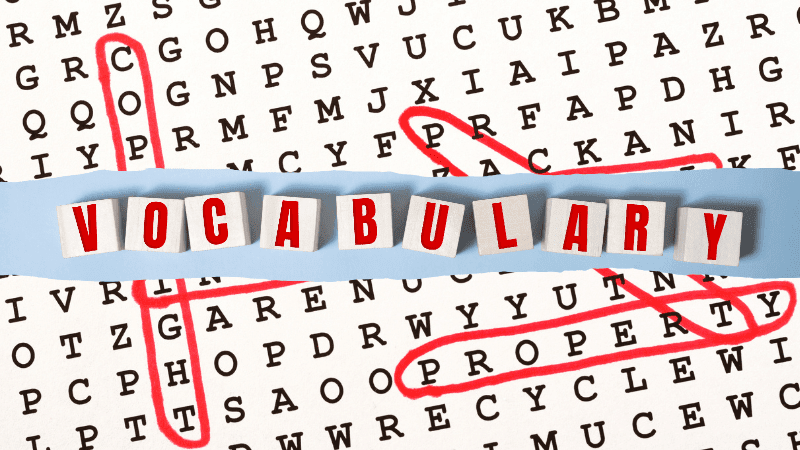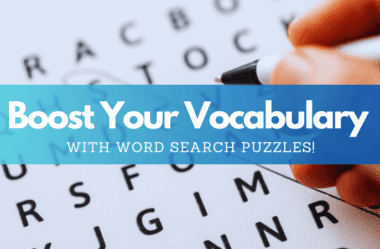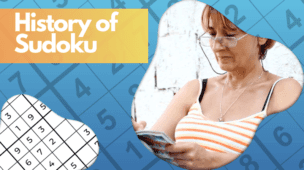Reading time: 15 minutes
Introduction
Did you know that the average adult knows between 20,000 and 35,000 words? Imagine how much richer our conversations and comprehension could be with an expanded vocabulary. Hey there! Have you ever found yourself stuck trying to recall the right word in a conversation? You’re not alone, and guess what? There’s a fun and effective way to boost your vocabulary! Word search puzzles aren’t just a nostalgic pastime; they are powerful tools for mental stimulation and vocabulary enhancement.
Many of us fondly remember spending hours searching for hidden words in a grid of letters. While it felt like simple entertainment, those word searches were doing wonders for our brains. Today, we delve into the unexpected cognitive benefits of word search puzzles and how they can be harnessed to build a stronger vocabulary. Curious? You should be, because the benefits are both surprising and substantial!
In this article, we’ll explore the cognitive benefits of word search puzzles, their practical applications for vocabulary building, and how they can be used effectively by different age groups. We’ll also provide tips for maximizing their impact and take a peek into the future of word search puzzles in education. Whether you’re a parent, a teacher, or just someone looking to boost your brainpower, there’s something here for you. Let’s dive into the fascinating world of word search puzzles and discover why they are more than just a fun way to pass the time.
The Cognitive Benefits of Word Search Puzzles
Enhancing Memory
Memory is a muscle, and like any muscle, it needs exercise to stay strong. When you’re searching for words in a word search puzzle, you’re actively engaging your brain’s memory centers. This isn’t just a theory; studies have shown that puzzles like word searches can improve memory retention. By repeatedly seeing and recognizing words, you’re reinforcing your ability to recall them later.
Think about it. Every time you find a word, you’re giving your brain a little workout. This process strengthens neural connections, making it easier to remember not just the words from the puzzle, but other information as well. It’s like taking your brain to the gym! Regular engagement with word search puzzles can help stave off memory decline, making it a beneficial activity for both young and older adults alike.
Improving Concentration
Ever find your mind wandering? Word search puzzles demand focus. When you’re scouring a grid for a specific word, your brain has to tune out distractions and zero in on the task at hand. This level of concentration is essential not just for finding words, but for enhancing overall cognitive function.
Consider the modern world, filled with constant notifications and multitasking. It’s easy to lose the ability to focus deeply on a single task. Word search puzzles are a simple yet effective way to reclaim that ability. By regularly engaging in these puzzles, you can train your brain to maintain focus for longer periods, which is a skill that translates well into daily life and work. So next time you feel your attention drifting, grab a word search puzzle and give your concentration a boost.

Boosting Problem-Solving Skills with Word Search Puzzles
Life is full of puzzles, and being good at solving them can give you an edge. Word search puzzles are a fun and engaging way to enhance your problem-solving skills. When you’re faced with a jumbled grid of letters, finding the right words requires analytical thinking and pattern recognition. These are the same skills that help us solve more complex problems in our daily lives.
Imagine you’re trying to find the word “concentration” in a sea of letters. You might start by looking for the “c”, then the “o”, and so on. This step-by-step method can be applied to other problem-solving scenarios, teaching you to break down large tasks into manageable chunks. Plus, the sense of satisfaction you get from finding that elusive word can boost your confidence in tackling other challenges. So, why not start your day with a puzzle and prime your brain for problem-solving?
Practical Applications of Word Search Puzzles for Vocabulary Building
Learning New Words
Expanding your vocabulary can sometimes feel like a daunting task, but word search puzzles make it surprisingly fun and effective. When you dive into a puzzle filled with unfamiliar words, you’re not just hunting for letters; you’re learning new vocabulary. Every new word you encounter in a word search is an opportunity to expand your language skills.
Let’s say you’re working on a themed word search puzzle about marine life. Words like “anemone,” “cephalopod,” and “plankton” might pop up. Not only are you recognizing and spelling these new words, but you’re also learning their meanings and contexts. This method of contextual learning helps you remember new vocabulary more effectively than rote memorization. By regularly solving these puzzles, you’ll find that your vocabulary grows effortlessly over time.

Reinforcing Existing Vocabulary
Repetition is key to retaining new information, and word search puzzles offer a perfect way to reinforce your existing vocabulary. When you repeatedly see and search for familiar words, it helps cement them in your memory. This is especially useful for students and language learners who need constant exposure to vocabulary to retain it.
Consider how often certain words appear in various puzzles. Each encounter is a reinforcement, making those words a permanent part of your mental lexicon. For instance, if you frequently do puzzles related to different themes like nature, technology, or history, you’ll repeatedly come across key terms related to those topics. This repetition ensures that these words stick with you long-term, boosting both your active and passive vocabulary.
Contextual Learning
Context is everything when it comes to understanding and remembering new words. Word search puzzles that focus on specific themes provide a context-rich environment for vocabulary building. Whether it’s medical terminology, legal jargon, or scientific terms, themed puzzles help you learn words within the context they are used, which enhances comprehension and retention.
Imagine working on a puzzle centered around medical terms. You might find words like “cardiology,” “neurology,” and “pathology.” Seeing these words together helps you understand their relationships and contexts, making it easier to remember and use them correctly. Themed word search puzzles are particularly beneficial for students and professionals looking to expand their specialized vocabulary. By regularly engaging with these puzzles, you can build a robust vocabulary tailored to your interests or career needs.
Word Search Puzzles for Different Age Groups
Word Search Puzzles for Children’s Vocabulary Growth
Early literacy and vocabulary acquisition are crucial in a child’s development, and word search puzzles can play a significant role in this process. For kids, these puzzles are more than just a fun activity; they are an engaging way to learn new words and improve spelling. When children search for words, they practice letter recognition and word formation, which are foundational skills for reading and writing.
Imagine a classroom where kids are excitedly working on a word search puzzle filled with animal names. They not only learn how to spell “elephant” and “giraffe,” but also enhance their ability to recognize these words in books and conversations. Teachers and parents can use themed word search puzzles to introduce children to new vocabulary in a playful and interactive manner, making learning feel like a game rather than a chore.
Word Search Puzzles for Adult Vocabulary and Cognitive Skills
Vocabulary building isn’t just for kids; adults can greatly benefit from word search puzzles too. Whether for professional development or personal enrichment, expanding your vocabulary can open doors to new opportunities and enhance your communication skills. Adults often find that word search puzzles provide a relaxing yet productive way to unwind after a busy day.
Consider professionals who need to stay updated with industry-specific jargon. A themed word search puzzle focusing on medical, legal, or technical terms can be an excellent way for them to familiarize themselves with new vocabulary in their field. Additionally, adults preparing for exams like the GRE or TOEFL can use word search puzzles as a supplementary tool to reinforce their learning. Testimonies from adults who regularly engage with word puzzles often highlight improvements in both their vocabulary and mental agility.
Word Search Puzzles for Seniors’ Mental Agility
Aging gracefully with a sharp mind is a goal for many seniors, and word search puzzles can help achieve this. Cognitive decline is a common concern as we age, but engaging in mentally stimulating activities like word searches can help maintain mental agility. These puzzles require concentration, memory, and problem-solving skills, all of which are beneficial for cognitive health.
Imagine a senior community center where residents gather for a daily word search puzzle session. This activity not only provides a social interaction opportunity but also serves as a mental exercise to keep their brains active. Real-life examples show that seniors who regularly solve word search puzzles experience slower cognitive decline and enjoy improved memory and focus. It’s a simple yet effective way to stay mentally fit while having fun.
Tips for Maximizing Vocabulary Building with Word Search Puzzles
Selecting the Right Puzzles
Choosing the right word search puzzles is essential for effective vocabulary building. Puzzles come in various difficulty levels, from beginner to expert, allowing you to select the ones that match your current skill level and push you to improve. Starting with easier puzzles can help build confidence, while more challenging ones can stretch your cognitive abilities and introduce you to more complex vocabulary.
Themed puzzles are particularly useful for targeted vocabulary building. Whether you’re interested in expanding your knowledge of animals, geography, history, or technology, there are word search puzzles designed to focus on these specific areas. For example, a themed puzzle on marine biology can introduce you to terms like “cephalopod,” “plankton,” and “coral reef.” Our online store offers a wide variety of themed puzzle books that cater to different interests and learning needs, making it easy to find the perfect match for your vocabulary goals.
Using a Vocabulary Journal with Word Search Puzzles
One effective way to maximize the benefits of word search puzzles is by keeping a vocabulary journal. As you find new words, jot them down along with their meanings and an example sentence. This not only helps reinforce your memory but also provides a handy reference for future use. Over time, you’ll build a personalized dictionary that reflects your expanding vocabulary.
To make this process more engaging, you can categorize words by themes or difficulty levels. For instance, create sections for scientific terms, historical figures, or literary vocabulary. Using a journal in conjunction with word search puzzles ensures that you actively engage with new words beyond just finding them in the puzzle. This method helps deepen your understanding and enhances your ability to recall and use these words in everyday conversations.

Integrating Puzzles into Your Daily Routine
Consistency is key when it comes to vocabulary building. Integrating word search puzzles into your daily routine can significantly enhance your language skills over time. Consider setting aside a specific time each day to work on a puzzle, whether it’s during your morning coffee, on your lunch break, or before bed. Making it a regular part of your day ensures continuous learning and improvement.
To keep your practice enjoyable and varied, try exploring different themes and difficulty levels. This approach not only keeps things interesting but also broadens the range of vocabulary you’re exposed to. Success stories abound of individuals who have incorporated puzzles into their daily lives and reaped the benefits in terms of improved vocabulary and sharper cognitive abilities. By making puzzles a part of your everyday routine, you can steadily build a richer and more diverse vocabulary.
The Future of Word Search Puzzles in Education
Digital Word Search Puzzles
The digital age has transformed the way we engage with educational tools, and word search puzzles are no exception. As technology continues to evolve, digital word search puzzles have become increasingly popular, offering interactive and engaging ways to enhance vocabulary. These digital versions often come with features like hints, timers, and themed categories, making the learning process more dynamic and tailored to individual needs.
Imagine a classroom where students use tablets or computers to solve word search puzzles. These digital puzzles can be easily customized to fit the curriculum, focusing on specific vocabulary lists or thematic units. Teachers can track students’ progress, identify areas where they might need more help, and provide immediate feedback. This integration of technology not only makes learning more fun but also more efficient and personalized. While traditional puzzle books remain valuable, the digital versions offer a modern twist that appeals to today’s tech-savvy learners.
Comparison between Digital and Traditional Puzzles
Despite their benefits, digital word search puzzles are not without drawbacks. Increased screen time is a significant concern, especially for young learners. Prolonged exposure to screens can lead to eye strain, headaches, and reduced attention spans. Moreover, digital puzzles might lack the tactile engagement that traditional paper puzzles provide, which can be particularly beneficial for kinesthetic learners who thrive on hands-on activities.
Traditional paper puzzles, on the other hand, offer a unique set of benefits that digital versions can’t fully replicate. The act of physically circling words on paper can enhance fine motor skills and provide a satisfying sensory experience. Moreover, paper puzzles can be a great tool for reducing stress and anxiety. The repetitive motion and focus required can have a calming effect, making them an excellent activity for unwinding after a long day. Incorporating traditional puzzles into educational strategies ensures that students get a break from screens, promoting a healthier balance between digital and analog activities.
Innovative Teaching Methods
Educators are always seeking new ways to make learning more effective and engaging. Word search puzzles are being integrated into innovative teaching methods to boost vocabulary and cognitive skills. These puzzles can be used as warm-up activities, homework assignments, or even as part of collaborative group work in the classroom. The versatility of word search puzzles allows them to be adapted to various teaching strategies, ensuring they meet the diverse needs of students.
Traditional word search puzzles, in particular, play a significant role in these innovative methods. Using paper-based puzzles encourages students to engage with the material in a tactile way, which can enhance memory retention and understanding. For instance, in a language arts class, students might be given a word search puzzle that includes key vocabulary from a story they are reading. This helps reinforce the terms in a fun and interactive manner, making it easier for students to recall the words later.

Additionally, traditional puzzles can foster collaborative learning. In a group setting, students can work together to find words, promoting teamwork and communication skills. This hands-on approach can be especially beneficial in subjects like history or science, where understanding terminology is crucial. By integrating traditional word search puzzles into lesson plans, educators can create a balanced and holistic learning environment that supports both cognitive and social development.
As we look to the future, the potential for word search puzzles in education is vast. With advancements in technology and a deeper understanding of how students learn best, word search puzzles are poised to remain a valuable educational tool. They offer a blend of traditional and modern approaches, making them adaptable to both in-person and remote learning environments. The future of word search puzzles in education looks bright, with endless possibilities for helping students of all ages build a stronger, more vibrant vocabulary.
Conclusion
Word search puzzles are more than just an enjoyable pastime; they are powerful tools for enhancing vocabulary and cognitive skills. Throughout this article, we’ve explored the various benefits of word search puzzles, from their ability to enhance memory and concentration to their role in practical applications for vocabulary building. We’ve also examined how these puzzles can be tailored to different age groups, providing specific benefits to children, adults, and seniors alike. By selecting the right puzzles, keeping a vocabulary journal, and integrating puzzles into daily routines, individuals can maximize their vocabulary building efforts.
The blend of traditional and digital puzzles offers a comprehensive approach to learning. While digital puzzles provide interactivity and immediate feedback, traditional paper puzzles offer tactile engagement and help reduce screen time, promoting a balanced and healthy learning experience. Word search puzzles are versatile educational tools that cater to various learning styles and needs, making them suitable for diverse educational settings. Their role in innovative teaching methods underscores their importance in modern education, where they enhance vocabulary, reduce stress, and foster collaboration among students.
Now it’s your turn! How will you integrate word search puzzles into your vocabulary building routine? We encourage you to start incorporating these puzzles into your daily life and experience the benefits firsthand. Whether you prefer the tactile satisfaction of traditional paper puzzles or the convenience of digital versions, there’s a word search puzzle out there for everyone.
Feel free to leave a comment below sharing your experiences or tips on using word search puzzles for vocabulary building. And if you’re looking for high-quality puzzle books, check out the various types of activity books available to suit all interests and skill levels. Happy puzzling!







Permalink